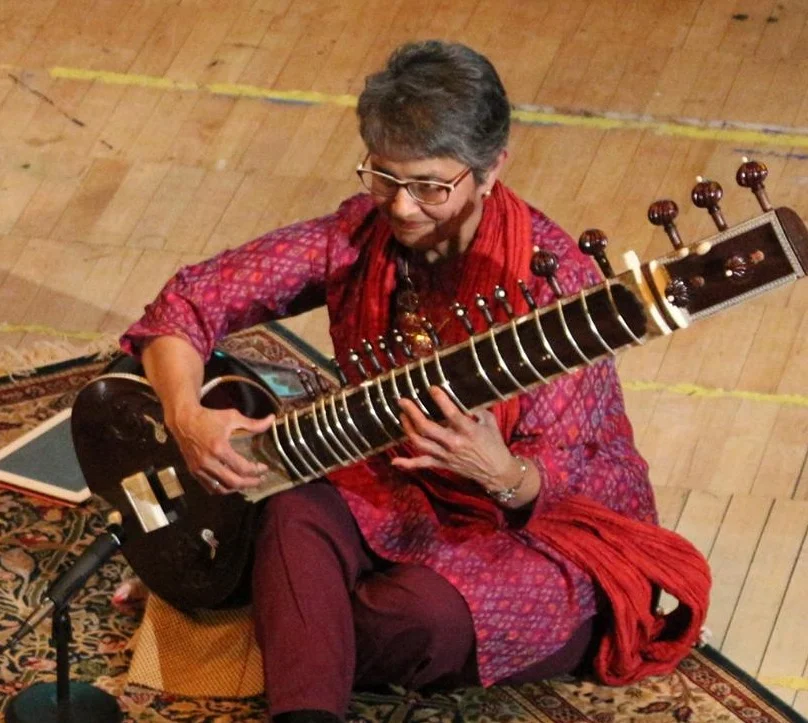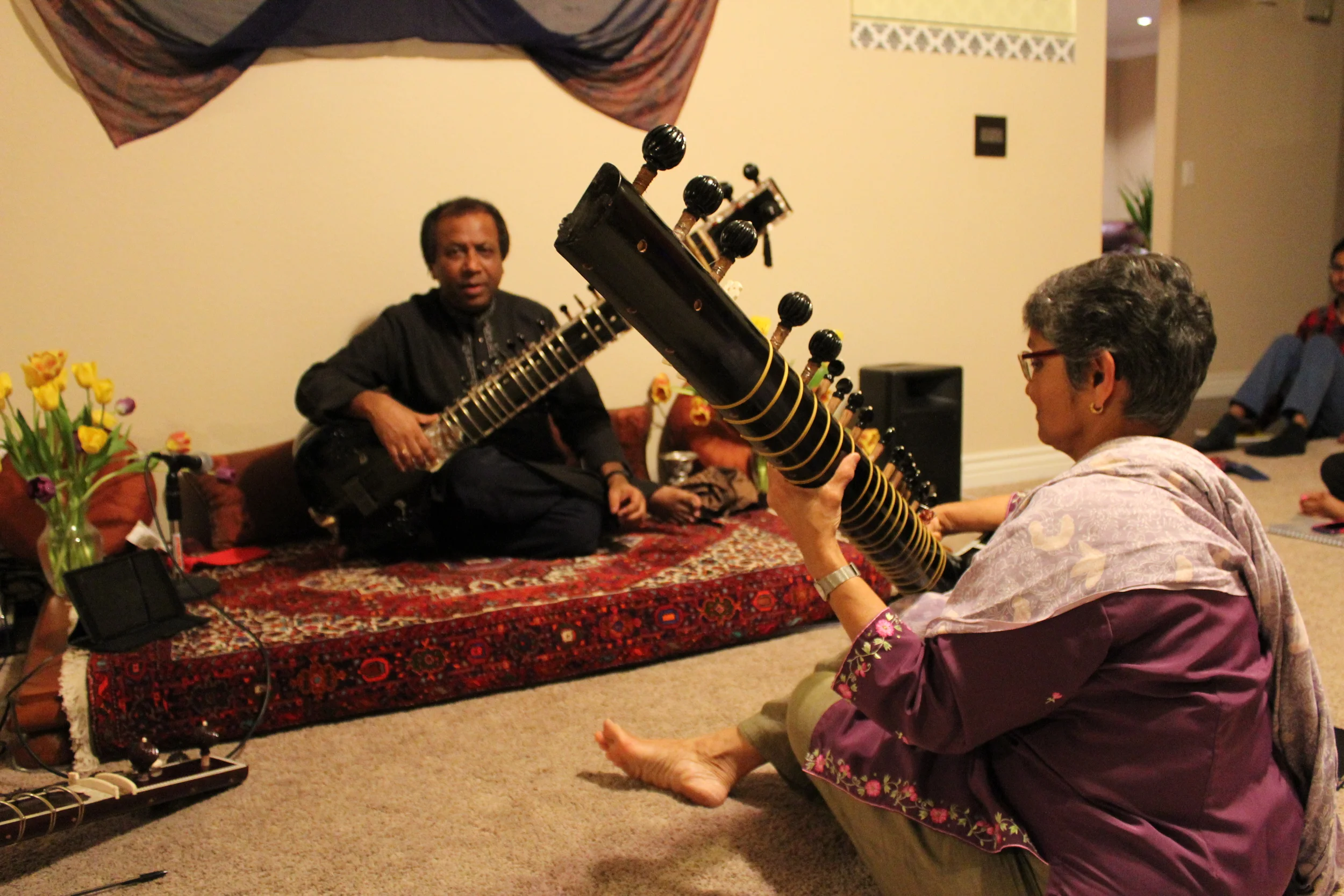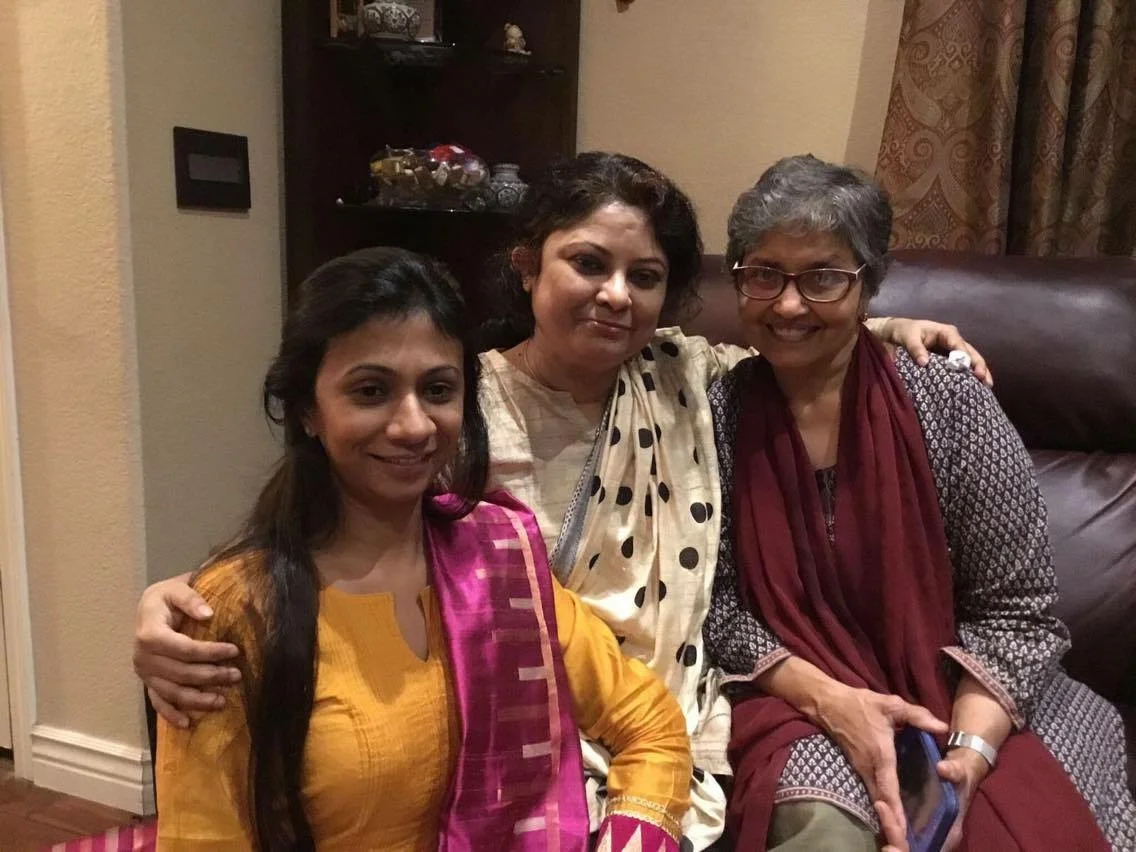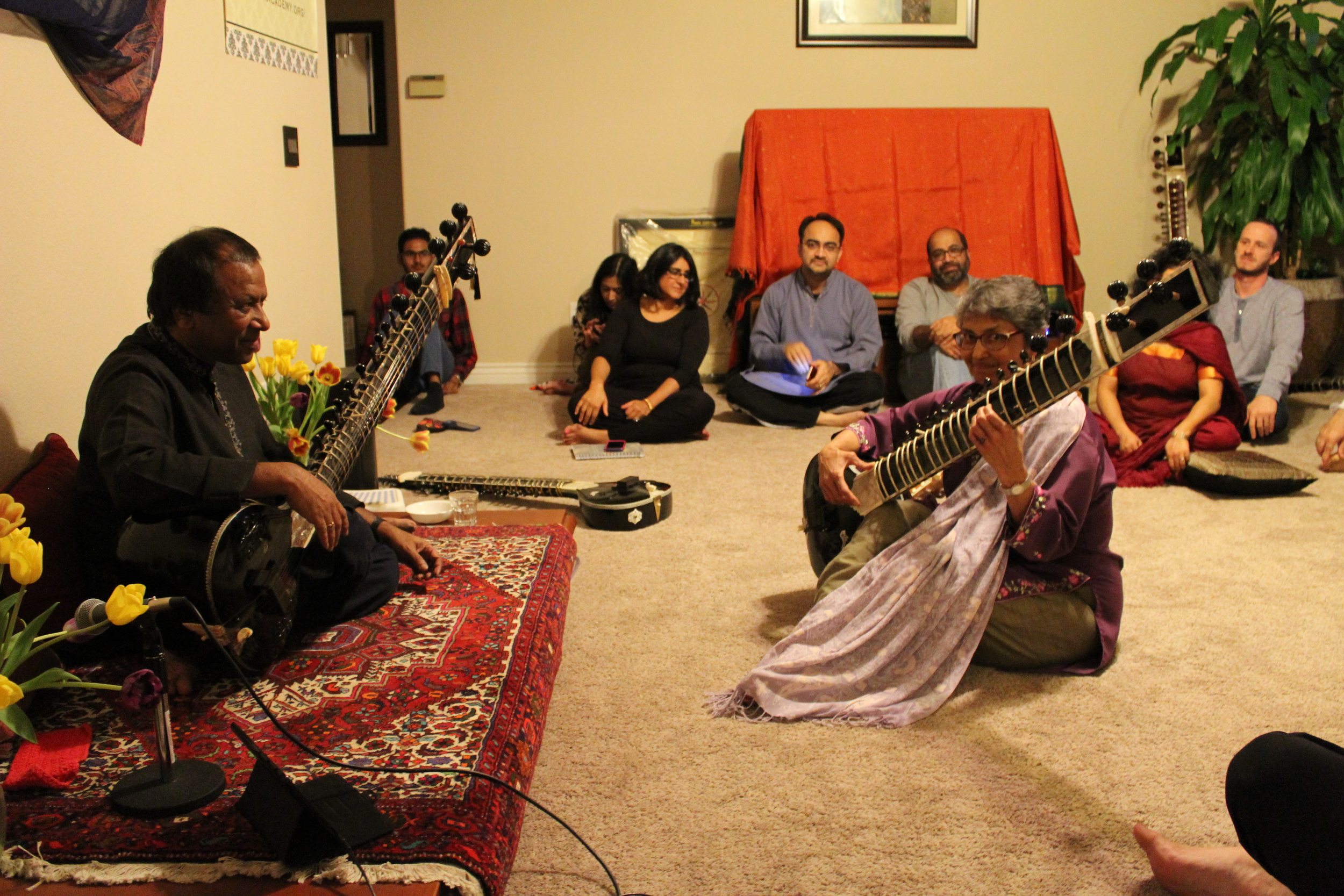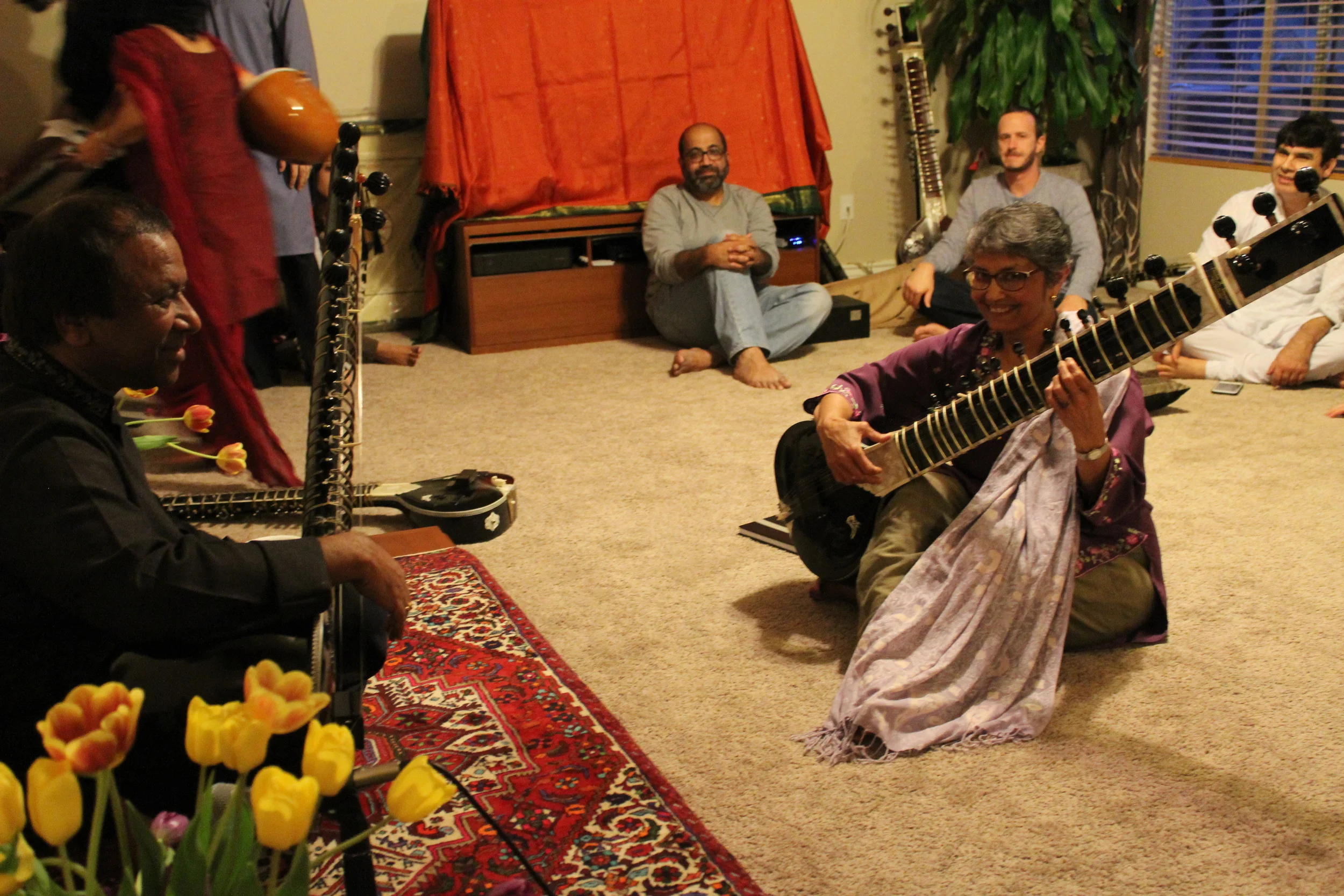I was introduced to Hindustani classical music and briefly learned vocal music, very early in my life. Thanks to my mother, I was exposed to musical performances by the great maestros of the 50s and 60s.
The first time I listened to Ustad Vilayat Khansaheb's recordings, I was barely a teen. The delicacy of the meends of his Gayaki style of sitar resonated within my soul and captured my heart, building a desire to pursue music, particularly the Etawah Gharana style of playing sitar.
However, this desire would have to be set aside; medical school and residency, moving to Philadelphia, fellowship, marriage, raising a family and caring for elderly parents all took precedence. After such a busy life with my medical practice, and caring for family with innumerable challenges that demanded a lot of my energy, I felt empty and depleted.
In 2009, I had the opportunity to hear Ustad Shahid Parvez Khan (Ustadji) play in Philadelphia. His creativity coupled with the exquisite clarity and brilliance of each note rekindled my life-long desire to learn music. Fortunately, my musician friend's teacher, who also lived in Phoenix, knew Seema and was able to help me get in contact with her. She encouraged me to attend the Boston shibir in 2010.
A well-known philosopher's words come to mind -
Finally in my mid-sixties, I would get the chance to start learning the sitar by a legendary Etawah Gharana master!
Shibirs are truly a magical experience! They are definitely physical demanding and intense (which is why I do regular yoga and exercise to enable me to sit for the long hours), however the bonus is that they really recreates the traditional atmosphere of a “gurukul”. SPK students are all ages and come from all walks of life. Everyone is connected and supportive of each other. We play music together, share our stories and cook and eat together as part of one big family.
Above that, I get to witness Ustadji’s genius in action and see first-hand that he practices excellence in all areas of his life, which is so inspiring. He too, will share priceless anecdotes and experiences from his life, including how he received his instruction and his practice philosophy. Who would not want to have such a rich experience?
In my practice, I could not build a trustful relationship with a patient based on my educational background alone, I had to try and understand what they were experiencing as well as, be attentive to the individuality of each person in order to educate them about their illness and the journey towards restoring their health.
Ustadji cultivates this same trustful relationship with each of his students. His vast knowledge, skill and experience are unparalleled and yet, he still spends the time adapting his teachings to each student’s needs. Occasionally the medicine [instruction] can be “bitter” but then again, it may be needed in order to restore a student’s musical journey.
Playing sitar gives me a sense of calmness, joy and mindful alertness. Ustadji always impresses upon us that "how you do music is how you do life - same concentration and dedication in all areas." This helps me practice in a conscious way and live life mindfully.
What drives me is the deep sense of connection I feel with my roots and culture through music as well as being in this community with everyone who has the same aspiration musically. The older I get, the greater the draw to the shores my motherland. Every Raga and its shades of expression, as expressed by Ustadji, helps me experience the essence and richness of my homeland - India.

